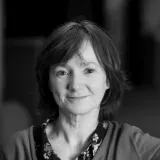The Department of Forensic and Neurodevelopmental Sciences (FANS) is one of Europe’s largest research groups and one of the few teams in the world bringing together leading experts in brain development and pro and antisocial behaviours. We believe it is essential to investigate the determinants of normal development in order to understand abnormal behaviour (or illness).
World-leading Experts
FANS academics play a critical role connecting expertise in basic animal models through to the latest neuroimaging technique, with epidemiology and the social sciences. We are world leaders in infant brain imaging, and in relating differences in brain structure and function to social and cognitive development.
We also study the genetics, epidemiology, psychopathology, neurobiology and psychopharmacology of autistic spectrum disorders and ADHD across the lifespan; conduct disorder and callous unemotional behaviour in children; and offending and antisocial personality disorder in adulthood.
National and International Partnerships
We have extensive collaborative links with centres nationally and internationally, including large EU funded training networks linking the Institute of Psychiatry, Psychology & Neuroscience to China, USA, and the Netherlands. Our work is supported by large scale grants from leading agencies including the Medical Research Council, Wellcome Trust, National Institute of Health Research, National Institutes of Health, and the European Union.
We currently hold around £45 million in research funding, and continually publish in the world’s best neuroscience, psychology and psychiatric journals.
Translational Research
By fostering collaboration between academics, researchers and clinicians, we rapidly translate cutting-edge research into clinical practice, improving patient outcomes, training and clinical practice to create world-leading improvements in healthcare.
As part of the Behavioural and Developmental Psychiatry Clinical Academic Group, we provide high quality forensic and neurodevelopmental services through the South London and Maudsley NHS Foundation Trust – provider of the widest range of mental health services in the UK.
Academic Excellence
Our MSc courses teach you everything you need to know and understand, whether enhancing your clinical practice, building a foundation for your DClinPsy application or providing a gateway for you onto our PhD programme.
Highly rated in postgraduate teaching and research assessments, our education programmes reflect the integration of our research programme with our clinical services, presenting our students with a unique learning environment along with opportunities to become the next generation of world-leading translational researchers.
Forensic and Neurodevelopmental Science MD(Res)/MPhil/PhD
The Department of Forensic and Neurodevelopmental Sciences offers prospective students on the Forensic and Neurodevelopmental Science MD(Res)/MPhil/PhD supervision from internationally recognised academics with expertise in many areas of forensic and neurodevelopmental research. These include:
- Autism Spectrum Disorder (ASD)
- Attention Deficit Hyperactivity Disorder (ADHD)
- Infant brain development
- Conduct Disorder
- Research in the Forensic Environment
We welcome applications from prospective students. Find out more about the application process or visit Postgraduate Research Programmes for information about the PhD opportunities available within the School of Academic Psychiatry. For general guidance on potential supervisors, contact the Post Graduate Admissions Tutor Dr Marija Petrinovic, including your CV and a brief research proposal.
Our courses
Duration: One year full-time, two years part-time, September to September
Our Clinical Neurodevelopmental Sciences course provides you with a holistic understanding of the aetiology and clinical management of neurodevelopmental disorders across the lifespan, with a particular emphasis on the adult population.
View course
Duration: 1 year full time (part time option available for Research Pathway only). See Course Essentials for more information.
The Forensic Mental Health course is designed for students with a clinical or academic interest in the complex relationship between mental disorders and criminal behaviour.
View course
FANS Events & Training
The department hosts the Forensic & Neurodevelopmental Sciences Research Seminars providing invited speakers with the opportunity to present the latest research and developments from across the field. Seminars take place every two months and provide a lively forum for all to exchange knowledge and ideas and build connections across the department and beyond.
In addition, we also deliver a number of training courses including ADOS-2 and ADI-r. Further information about these and other course can be found on the FANS Autism training event series page.
-

PhD Student
-

PhD Student
-

Senior Lecturer in Neurodevelopmental Science
-

Research Assistant
-

Professor of Forensic Psychiatry
-

Research Assistant in Digital Health
-

Research Assistant
-

PhD Student
-

Research Associate (Communications Officer)
-

PhD Student
-

Professor in Forensic & Neurodevelopmental Sciences
-

Reader in Neurodevelopmental Sciences
-

Senior Lecturer
-

Senior Lecturer
-

Research Assistant and PhD Candidate
-

Visiting Research Fellow
-

PhD student
-

Postdoctoral Research Associate
-

Research Assistant
-

PhD Student
-

Postdoctoral Research Associate
-

Lecturer in Psychology
-

PhD Student
-

PhD Student
-

Research Assistant
-

PhD Student
-

Research Associate
-

PhD student
-

Postdoctoral Research Associate
-

Research Assistant
-

Professor of Cognitive Neuroscience
-

Clinical Reader
-

Lecturer in Biomarker Analysis
-

Professor of Translational Neuroscience
-

Postdoctoral Research Associate
-

PhD student
Click here for a full list of people associated with this Department
ABC brings together world-class experts forming a multidisciplinary team which is widely published and has conducted the largest number of studies in Europe on antisocial behaviour in children and adolescents.
The Brain Imaging in Babies Study (BIBS) aims to improve understanding of how a baby's brain develops from before birth up until 3-4 years of age.
Gen2020 researchers will map the potential impact of prenatal exposures such as Covid-19 on fetal and childhood brain development and outcomes.
The DID-SIG is an independent group composed of clinicians (including clinical psychologists, psychiatrists, occupational therapists and nurses) from across the UK and beyond who have a special interest in dementia in people with intellectual disabilities.
The first of its kind in the UK, our cutting-edge research aims to improve understanding of domestic violence and abuse (DVA) perpetration and victimisation among military personnel and their partners.
One of the largest ever research projects finding new ways to develop drugs for autism spectrum disorder (ASD).
“Fitness to Plead” is a fundamental but understudied concept of criminal justice. It refers to a defendant’s ability to understand and participate in the legal process, a prerequisite to a fair trial. There is a need to balance the individual’s right to make autonomous decisions regarding their trial with their ability to effectively participate. The assessment of fitness to plead is carried out by psychiatrists and determined by a judge, and the costs of dealing with unfit individuals are high.
“Fitness to Plead” is a fundamental but understudied concept of criminal justice. It refers to a defendant’s ability to understand and participate in the legal process, a prerequisite to a fair trial. There is a need to balance the individual’s right to make autonomous decisions regarding their trial with their ability to effectively participate. The assessment of fitness to plead is carried out by psychiatrists and determined by a judge, and the costs of dealing with unfit individuals are high.
The Forensic Research Group explores the complex relationship between mental disorders and crime.
The Institute for Translational Neurodevelopment was launched in 2013 and carries out multidisciplinary ‘translational’ studies of normal development, and how abnormalities in that process lead to high cost neurodevelopmental disorders.
The latest annual LeDeR report in collaboration with our academic partners on behalf of NHS England.
London Down Syndrome Consortium is a multidisciplinary group of clinicians, human geneticists, developmental psychologists, mouse geneticists, psychiatrists and cellular scientists working towards understanding dementia in people with Down syndrome.
Led by Dr. Nicolaas Puts, the Sensory Inputs lab focuses on measuring the behavioural, physiological, and clinical response of human to different types of sensory information.
We are investigating the link between Down syndrome and Alzheimer's disease from the different perspectives of our fields. People with Down syndrome are predisposed to developing Alzheimer's disease and we are working together towards finding out why.
Research projects
Principal investigators:
Claire Henderson,
Shubulade Smith.
ACDI aims to address the research-to-practice implementation gap for advance choice documents.
Project status: Ongoing
Principal investigators:
Rory Sheehan,
Professor Andre Strydom.
Improving identification, recording, and reasonable adjustments for people with learning disabilities and autism in EHRs using AI and machine learning.
Project status: Ongoing
Principal investigators:
Bethany Oakley,
Emily Simonoff,
Declan Murphy.
This study tests the acceptability and feasibility of a new, app-based therapeutic approach for anxiety developed with, and adapted for, autistic people.
Project status: Ongoing
Principal investigators:
Brónagh McCoy.
The MonoPoly project will investigate the theory of monotropism, an attention-based theory of autism.
Project status: Ongoing
Principal investigators:
Rory Sheehan,
Afia Ali.
The OptiCaT study aims to investigate Care Education and Treatment Reviews for people with learning disability and autistic people and how these can be improved
Project status: Ongoing
Principal investigators:
Hannah Dickson.
Using administrative data to examine the educational predictors of violent recidivism and to externally validate the Oxford risk of Recidivism tool.
Project status: Ongoing
Principal investigators:
Angeliki Evripidou.
To explore the impact of secondary school exclusion and alternative education provision on prolific offending.
Project status: Ongoing
29 January 2026
King's College London to lead multi-million pound trial to assess if a simple nasal spray could…
19 November 2025
Professor O’Muircheartaigh shared his lecture with a busy Wolfson Lecture Theatre at the Institute…
11 September 2025
Parenting programmes can lead to changes in how children with conduct problems process rewards in…
10 May 2024
IoPPN Professor of Translational Neuroscience previously served as Interim Director of the centre…
4 April 2024
King’s College London researchers have shown that the brain chemical GABA regulates activity in the…
25 March 2024
A new project led by researchers at the Institute of Psychiatry, Psychology & Neuroscience (IoPPN)…
30 November 2023
The 2022 LeDeR report, which seeks to investigate and learn from the avoidable deaths of people with…
17 July 2023
Professor Eva Loth delivered the seventh lecture of the 2022/23 Institute of Psychiatry, Psychology…
24 May 2023
Professor McAlonan appointed to role in May, and will act as interim NIHR Maudsley BRC Director from…
19 January 2023
Dr Lade Smith CBE has been elected as the next President of the Royal College of Psychiatrists…